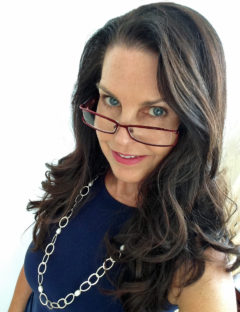![]() March 2010
March 2010
 The Collins family appears lucky. It can claim three multi-million dollar lottery winners through its relatives. One of the family wins, a Catholic brother-in-law, stopped to pray on his way home from work and used the posted hymn numbers from a service as his picks. One might say, “God is good,” but psychology experts stress the power of positive thinking and gathering good to you as well.
The Collins family appears lucky. It can claim three multi-million dollar lottery winners through its relatives. One of the family wins, a Catholic brother-in-law, stopped to pray on his way home from work and used the posted hymn numbers from a service as his picks. One might say, “God is good,” but psychology experts stress the power of positive thinking and gathering good to you as well.
Do people make their own luck? Burt Gershater, a licensed counselor and motivational speaker who consults with businesses and athletic teams, said, “To a large degree, we do. By hard work, by good deeds and by noticing. The more present we are, the more luck we notice.”
Lucky people have purpose which provides direction. As they move through their lives, they are clued in to the indicators that direct them rather than the obstacles that block their path. Their destination is rarely a million dollars. Often, it’s education, a healthy marriage, honing a skill, opening a business, and ultimately, finding contentment in the journey to those goals. Lucky people don’t compare their lives to others, they live their own dreams.
There might be a pot of gold at the end of the rainbow, but Gershater said, “Don’t wait for the rainbow. It can be a long, long wait. Every step towards making your life better gets you there. There is a direct relationship to our movement, and luck begets people who instigate a path of noticing opportunities.”
So, if we can chart our lucky stars, does a bad attitude thwart our progress? Heed the closing words of those Hee Haw codgers plucking at their banjoes, “Deep dark depression, excessive misery. If it weren’t for bad luck, I’d have no luck at all…”
Gershater confirmed, “Pattern of thoughts or actions can create or repel luck. Positive people draw positive things. If you think you’re unlucky, you might send out energies that keep you from seeing the blessings that are out there.” In other words, what we say repetitively to ourselves and others becomes true to us. Criticizing ourselves or expecting the worst to happen creates self-fulfilling bad luck – or a blind spot for good. This is neuro-linguistic programming in action, and we should use it to focus our awareness, behavior and circumstances on recognizing the signs that guide us to our destinies.
In Bryce Courtenay’s classic novel of South Africa, The Power of One, the main character Peekay decides at age nine to become the welter-weight champion of the world. No small thing for a poor, small boy. As his vision gels, Peekay says, “I was seldom concerned with winning a particular fight; instead I was cultivating a habit of winning. Winning is a state of mind that embraces everything you do, so I found I won in other things as well.”
Around the world, people greet each other with expressions of good luck. Bonne chance! Lycka til! ¡Buena suerte! Sterkte! That last phrase in Afrikaans literally means strength. This is the heart of it. A great deal of luck is our frame of mind expressed in the living out our days.
Gershater pointed at the book, The Biology of Belief by Bruce Lipton Ph.D., an internationally-known authority bridging science and spirit. Within its pages, the discussion ensues as to whether DNA determines our behavior or behavior impacts our DNA. Either way, advocates advise against looking at our life as an excuse for staying unfortunate. Instead, tap into the need and ability to change to generate fortunate outcomes.
“What is the biggest disease?” asked Gershater, and then, answered his own question, “Taking things for granted. The only part of luck we can create is positive action. Habits are hard-wired into us, and we need to create a new pathway through repetition.” Gershater practices what he preaches. Ten years ago, he decided to shed his cynical outlook by starting each day with an attitude of gratitude as motivator Anthony Robbins suggests. Friends and family noticed. “It changed my habits and my outlook, my expectations and elevated my spirit.”
The collaboration of working at our dreams with a conscious practice of gratitude is key. Still, we can increase our luck through generosity, discipline, perseverance, asking for help, praying and positive thinking. Gershater added, “Inexplicable magic happens by living that way.” NAMLM Gail G. Collins
